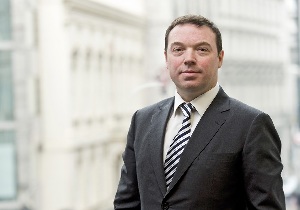FMA: Adviser licensing will be a challenge
The Financial Markets Authority is bracing for a flood of work when the new financial adviser licensing regime begins – but it’s not clear yet how big the wave will be.
Thursday, August 9th 2018, 12:00PM
by Susan Edmunds

It has released its annual corporate plan, which sets out its work for the year ahead.
The advent of new legislation for the financial advice sector will be a key area of work.
The FMA said one of its objectives was to achieve a smooth transition to the new regime, with minimal disruption to the market and the provision of advice.
It would need a licensing regime that was both robust in ensuring appropriately capable advisers entered the market and efficient so it did not create unnecessary barriers to entry.
The FMA also wanted improved conduct in the advice market through risk-based monitoring against standards set out in the new code of professional conduct.
The Code Working Group expects to finalise that code by early 2019, at the latest. Market participants will then have nine months once that is approved to apply for a transitional licence, and two years to transition to a full licence.
Those licences will be administered by the FMA – the levies and charges associated have not yet been determined.
FMA chief executive Rob Everett said it was not yet clear what the FMA would need to do to get ready for that licensing process.
Head of regulation Liam Mason said the FMA did not have a good picture of the current market of financial advisers who were not authorised. Most advisers still did not have a regulatory relationship with the FMA, he said, so it was hard to estimate what sort of numbers of financial advice providers would seek a licence under the regime.
“It’s going to be a major piece of work for us – licensing more firms than we ever have before.”
The FMA was beginning to prepare a licensing process that was scalable but would get a better picture of what was coming when the legislation was signed off, he said.
Licensing would need to be able to achieve the effect of driving standards up in the market.
When the Financial Markets Conduct Act came into force, the FMA was tasked with licensing providers such as derivatives traders and managed investment schemes. But Mason said that scenario was different because there had been a clear population that was expected to seek a licence.
In this case, some advisers might take a transitional licence then decide too go through to full licensing, he said. Some existing RFAs might opt for a licence on their own while others would work together with other like-minded advisers to apply for one as a group, he said.
The cost of licensing is likely to be borne by government funding and the industry.
Another key part of work over the next year is the conduct and culture review under way in conjunction with the Reserve Bank, looking at insurers and banks.
Everett said it was an example of how the FMA would change its plans in relation to the market.
“While the FMA continues to foster a collaborative approach with industry, firms have now had sufficient time to understand their obligations and our expectations under the new regulations introduced over the last few years.
"We have become increasingly impatient with the lack of attention to better customer outcomes and strong conduct frameworks from parts of the industry. In the year ahead, the FMA expects firms to be able to provide concrete evidence of progress they’ve made in putting good conduct outcomes at the heart of their business.”
| « Fund manager research: Where to from here? | Mann on a mission to diversify financial advice » |
Special Offers
Comments from our readers
No comments yet
Sign In to add your comment
| Printable version | Email to a friend |



